It is an exhilarating experience to hunt with a crossbow, and it requires skill and precision to do so. Crossbow hunting requires properly sighting your crossbow scope. It is very critical to get an accurate sighting before hunting. Proper sighting can be the difference between a successful hunt and a missed one.
This comprehensive guide walks you through the process of impeccable accuracy, whether you’re a seasoned hunter or just starting out.
Understanding Crossbow Sighting
Using crossbow sighting, you align your scope with your target, ensuring that your bolts hit your target where you intend them to. It is the alignment that directly impacts shooting accuracy, allowing hunters to take ethical and effective shots. Sighting enhances confidence and improves overall performance in the field, so it cannot be stressed enough.
Choosing the right equipment sets the foundation for successful sightings. A reliable crossbow, a quality scope, and a suitable target are all you need to get started. Outdoor Life suggests researching different types of scopes, considering factors like magnification and reticle sizes.
Also Read : The best crossbow under $500 for 2024: Reviews and Recommendations
How To Sight In A Crossbow Scope: A Step-By-Step Guide
Step 1: Initial Setup
Begin by positioning your crossbow securely, ensuring stability while aiming. Set up your target at a distance that matches your usual shooting range. Whether you’re in a wooded area or an open field, ensure a clear line of sight to the target. Bowhunting.com recommends a stable rest for consistency.
Step 2: Align The Scope
Aligning the scope involves adjusting it so that the crosshairs intersect at the target’s center. Different sighting devices, such as red dots or duplex, influence sighting. Bowhunter outlines how specific reticles can impact accuracy, helping you choose the one that suits your needs.
Step 3: First Shot And Adjustments
Take your initial shot and assess its accuracy. Measure the deviation from the bullseye and make necessary windage and elevation adjustments. Real World Survivor provides expert tips on interpreting these results for precise adjustments.
Step 4: Fine-Tuning
Fine-tuning involves refining your sights for peak accuracy. Consider environmental factors like wind and temperature. Bowhunting.com discusses advanced techniques such as adjusting for wind drift, ensuring your shots remain true even in challenging conditions.
Step 5: Consistent Practice
Practice is the key to accuracy. Regular sessions reinforce muscle memory and boost confidence. Pro tip from World Archery experts emphasizes the importance of consistency in practice to ensure reliable performance in real hunting scenarios.
Also Read : Getting the Best Crossbow Scope: Enhancing Your Precision
Common Mistakes To Avoid
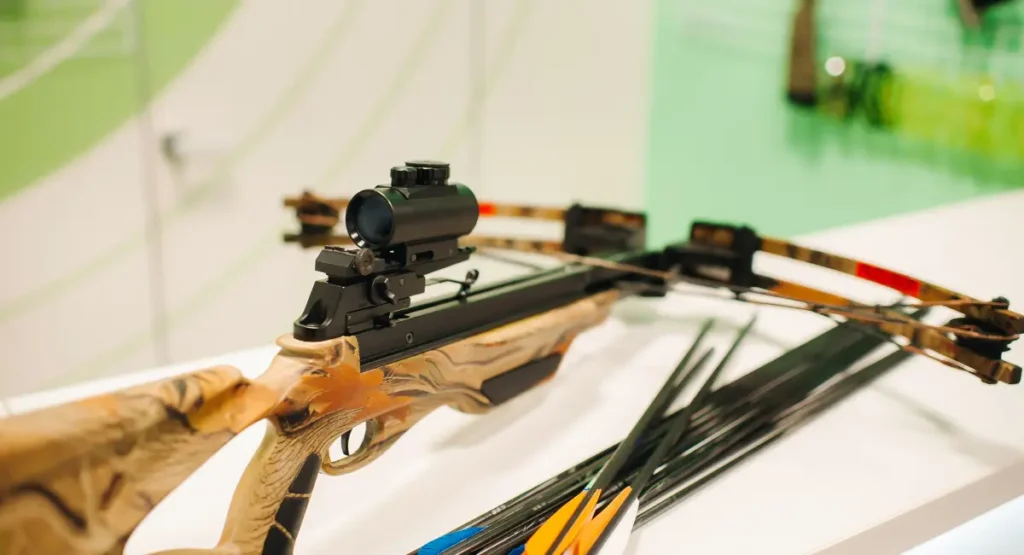
If you avoid these common mistakes in advance, you will have fewer sighting issues later on. Hunter-ed lists common errors such as wrong scope mounting, neglecting practice, and overlooking environmental factors. By resolving these issues upfront, you will be able to simplify your sighting process.
Advanced Precision Techniques
If you’re an experienced hunter seeking greater precision, advanced techniques may be the answer. High-level adjustments, such as parallax correction, can increase your accuracy to an even greater extent. If you’re thinking about upgrading your equipment, consider high-quality scopes or accessories that will enhance your performance further.
Also Read : Choosing The Right Hunting Bow – Crossbow Vs Compound Bow?
Real-Time Examples And Case Studies
The field of sighting techniques can offer valuable insight into the practical application of sighting techniques. Field & Stream shares stories of hunters who have achieved remarkable accuracy through meticulous sighting. These examples show that it is crucial to adapt your sighting techniques to a changing environment and environment.
Conclusion
This guide will help you learn how to align your crossbow scope with accuracy and confidence. It combines technical precision with practical experience. This guide emphasizes the importance of thorough preparation for successful shooting, from initial setup to advanced techniques.
Crossbow sighting is a gateway to improving your overall performance, whether you’re preparing for a hunting expedition or honing your range skills. To foster a sense of community and continuous improvement, you need to apply what you’ve learned, practice consistently, and share your experiences with your fellow enthusiasts.
Also Read : Discover The Art Of Crossbows And Their Many Uses
Frequently Asked Questions (FAQs)
How Do You Sight In A Crossbow Scope For The First Time?
Start by securing your crossbow and setting up a target. Align the scope using the crosshairs and make initial adjustments based on your first shot’s accuracy.
What Distance Should I Sight In My Crossbow?
The sighting distance can vary, but starting at 20 yards is recommended. Extend the range as you fine-tune your settings.
How Often Should You Re-Sight Your Crossbow Scope?
Make sure you check your sighting regularly, especially after transportation or impact. Recheck your vision if you notice accuracy changes.
What Is The Best Method To Sight In A Crossbow Scope?
The most effective method involves taking initial shots, making systematic adjustments, and practicing consistently. Incorporate environmental considerations for optimal results.
Can You Sight In A Crossbow Without A Scope?
While it is possible to precision without a scope, A scope aligns shots accurately at varying distances.
What Are Common Mistakes To Avoid When Sighting In A Crossbow?
Mistakes include improper mounting, neglecting practice, and ignoring environmental factors. Address these issues to ensure successful sighting experiences.
Recommended Articles
- The Ultimate Guide To Choosing Between Compound Bow vs Crossbow
- How To Carry A Bow – Tips & Techniques For Archers
- Ultimate Guide To Installing Compound Bow Arrow Rest
- The Ultimate Guide To The Best Archery Brands Of Compound Bows
- How To Utilize Recurve Bow Sights: A Comprehensive Guide
- The Archer’s Craft: Understanding Parts Of Recurve Bow

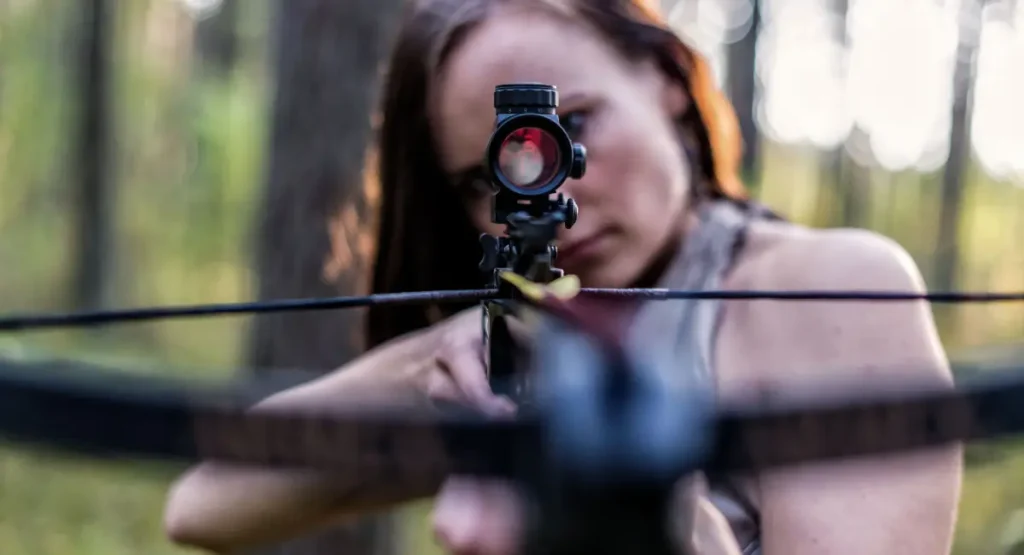
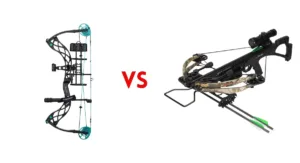
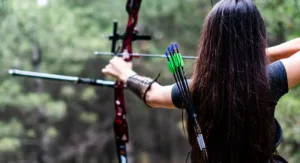
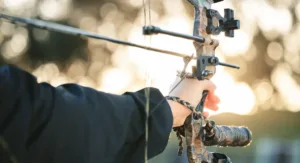
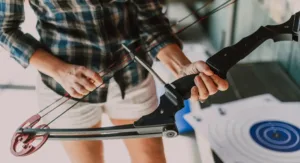
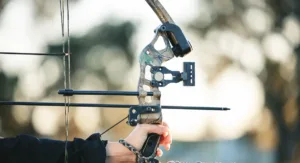
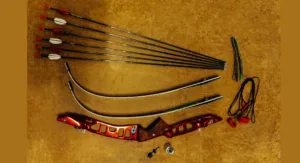
1 thought on “How to Sight in a Crossbow: An Ultimate Guidelines for Precision And Accuracy”
Comments are closed.